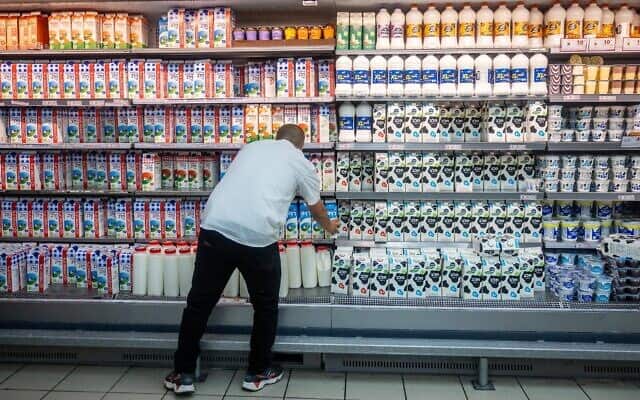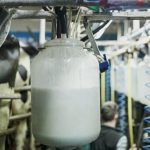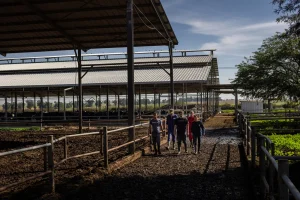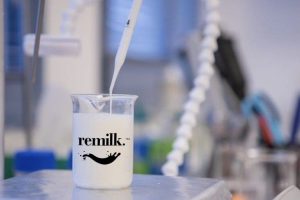
Finance Minister Smotrich seeks to open market for cheaper imports to address milk shortage in stores and supermarkets
Finance Minister Bezalel Smotrich on Thursday signed an order to slash the customs duty on imported milk for a period of three months in order to address the shortage of the dairy product in retail stores and supermarket chains.
The order will remove the 40% customs tax currently levied on milk effective until October 9, to encourage cheaper imports, which have been economically unviable. Israel regulates the price of a number of key locally produced dairy products including milk, soft white cheese and basic bread, which are more expensive than in European countries.
The recent milk shortage comes after the price of regulated dairy products rose over 9% in May, when Smotrich reached a last-minute agreement with dairy manufacturers for the expected 16% increase to be spread out across a number of years. Dairy producers have been complaining that the price of food grains for cattle that account for a significant part of the cost of producing dairy items has jumped, raising costs.
“Too many times in recent years Israelis have gone to supermarkets and retail chains and found no milk on the shelves,” said Smotrich. “That’s a situation I’m not willing to accept.”
It remains to be seen if it importers will find it worthwhile economically and logistically to bring in milk for a limited time period, considering that the cost of kosher certification has to be factored in.
Dairy prices in Israel are a sensitive issue and have sparked reactions that often snowball into mass demonstrations against the high cost of living. In 2011, the so-called cottage cheese protest sparked weeks of social unrest, resulting in supermarkets lowering the price of dairy goods alongside policy reforms aimed at lowering consumer costs.

“In the next three months we will examine the impact of the order on the market both in terms of the numbers and with regard to prices,” Smotrich said. “We will hold intensive dialogue with all the players in the dairy industry to examine the corrections that need to be made to ensure a regular supply and optimal price of milk and dairy products.”
The cancellation of the customs duty is not expected to lead to a loss in tax income, as the high tariff has prevented the import of milk and other dairy products into Israel. Meanwhile local farmers will not be harmed since the dairies will continue to buy the current milk quotas at the existing target price, the ministry said.
Separately, Smotrich announced that he intends to increase the quota of foreign workers in agriculture to lower labor costs in light of the difficulties faced by Israeli farmers grappling with a shortage of laborers.




















